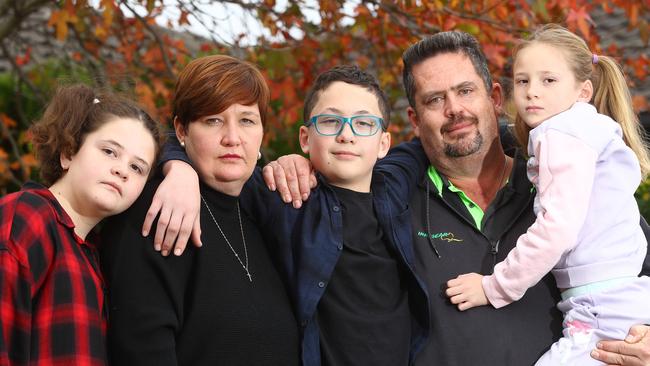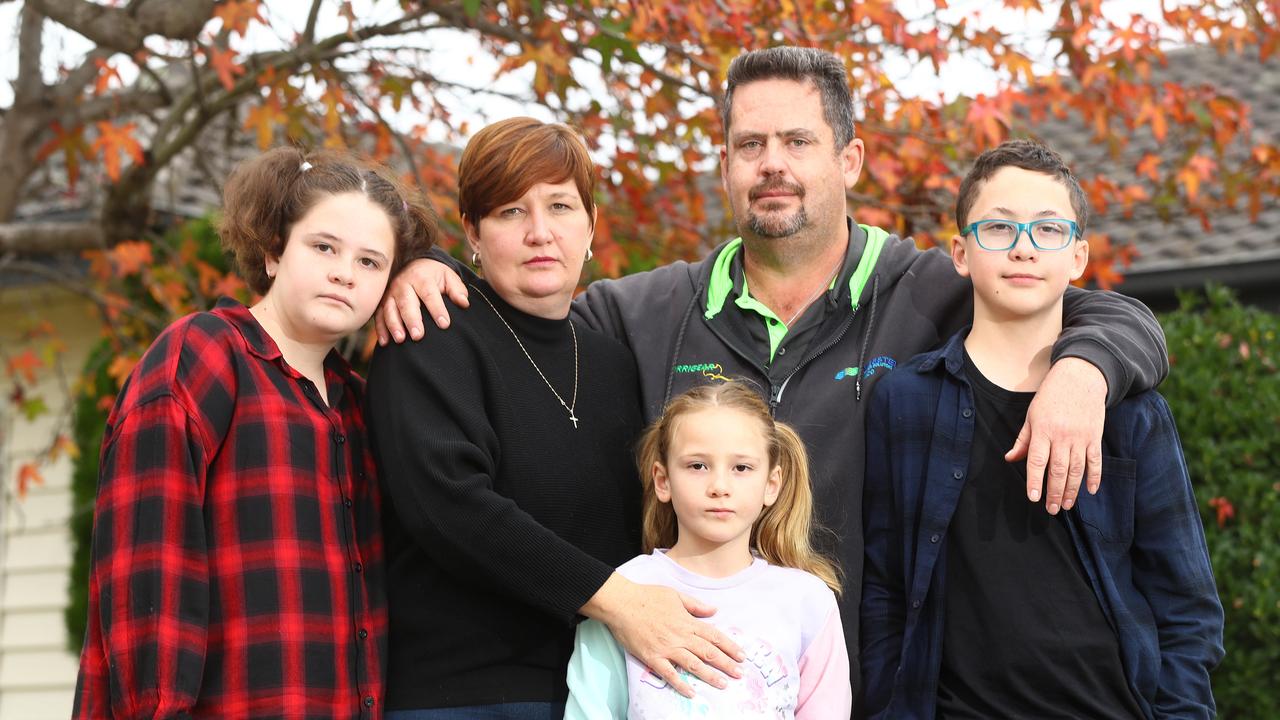Belmont family may not be granted permanent residency after son diagnosed with type 1 diabetes
A teen’s diabetes diagnosis could mean his family is forced to move back to South Africa, despite making their home in Geelong.

Geelong
Don't miss out on the headlines from Geelong. Followed categories will be added to My News.
A Belmont family who moved to Australia from South Africa last year may not be granted permanent residency after their son was diagnosed with type 1 diabetes.
Nico Willers, his wife Jane and their three children moved from Pretoria, the country’s capital, to Geelong in May 2023 so he could work as a pump technician.
Webster Water Solutions, based in Belmont, had been struggling to fill the position for six years and sponsored the family to relocate on a four-year temporary skill shortage (482) visa.
The 44-year-old owned a similar business in South Africa but couldn’t land any projects.
“I needed to come up with another plan so I looked for jobs online,” Mr Willers said.
Webster Water Solutions director Katrina Harris described Mr Willer as a “god send”.
“He is irreplaceable, he has more than 20 years of experience,” she said.
“We deal with pumps and water management … it’s not something a plumber can do.
“We’d been searching all across Australia and New Zealand to find a technician.”
Mr Willers said his family settled well into their new life in Geelong.
Oldest children, 13-year-old twins Nico and Karla, attend Belmont High School, and Karla, 8, goes to Roslyn Primary School.
But in August last year, Nico was diagnosed with type 1 diabetes.
“He was very tired all the time and he complained about a sore stomach,” Mr Willers said.
“We don’t have a family history of diabetes so we thought he might be homesick.”
But then Nico “went downhill fast”.
“We took him to an emergency care doctor who thought it may be his appendix but then they realised his blood sugar was extremely low,” Mr Willers said.
Nico was rushed to Geelong hospital in an ambulance as his organs were beginning to shut down and spent five days in intensive care.
He now monitors his insulin and blood sugar multiple times a day via an app on his phone.

The family wants to stay in Geelong, but multiple immigration agents have told them permanent residency may not be granted due to Nico’s diabetes, which is understood to be considered a “disability”.
“Agents are saying it could be a problem but no one is giving us a straight answer,” he said.
“Some have said our chances of getting permanent residency was almost none but others have said we could give it a try.”
Mr Willers said he was told moving to a rural area, such as far north Queensland, could be considered more favourable.
“I don’t want to leave Geelong or leave my job here,” he said.
“I’m very loyal to people so I don’t want to drop (my job) to benefit myself.”
The family spent about $24,000 moving to Australia and Mr Willers said it could cost him $15,000 in legal fees to apply for permanent residency.
The cost of Australian permanent residency is about $4640 for an adult and $1160 for a minor.
“We spent a lot of money coming over here,” he said.
“We don’t want to have to go back and start again from scratch.”
A Department of Home Affairs spokeswoman said it does not comment on individual cases.
“The Australian government administers the migration health requirement to protect the community from public health and safety risks, contain public expenditure on health care ... and safeguard the access of Australian citizens and permanent residents to ... services in short supply,” she said.
“(The requirement) is not condition-specific and the assessment is undertaken individually for each applicant based on their condition and level of severity.
“Health waivers are available for a number of visa subclasses, where visa processing officers are able to consider the individual personal circumstances of applicants.
“Just because a person failed to meet the health requirement, does not mean that their visa will be refused.”
More Coverage
Originally published as Belmont family may not be granted permanent residency after son diagnosed with type 1 diabetes






